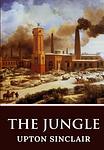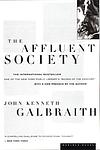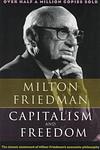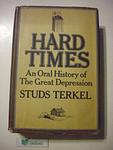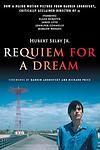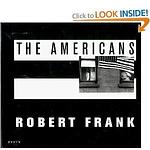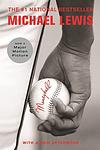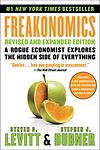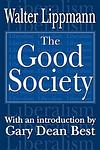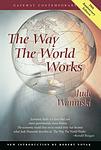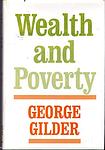The Greatest American "Economics" Books of All Time
Click to learn how this list is calculated.
This list represents a comprehensive and trusted collection of the greatest books. Developed through a specialized algorithm, it brings together 300 'best of' book lists to form a definitive guide to the world's most acclaimed books. For those interested in how these books are chosen, additional details can be found on the rankings page.
Genres
Economics is a category of books that explores the production, distribution, and consumption of goods and services. It delves into the principles of supply and demand, market structures, and the role of government in regulating economic activity. Books in this category may cover topics such as macroeconomics, microeconomics, international trade, finance, and economic history. They provide insights into how economic systems work and how they impact individuals, businesses, and society as a whole.
Countries
Date Range
Reading Statistics
Click the button below to see how many of these books you've read!
Download
If you're interested in downloading this list as a CSV file for use in a spreadsheet application, you can easily do so by clicking the button below. Please note that to ensure a manageable file size and faster download, the CSV will include details for only the first 500 books.
Download-
1. The Great Gatsby by F. Scott Fitzgerald
Set in the summer of 1922, the novel follows the life of a young and mysterious millionaire, his extravagant lifestyle in Long Island, and his obsessive love for a beautiful former debutante. As the story unfolds, the millionaire's dark secrets and the corrupt reality of the American dream during the Jazz Age are revealed. The narrative is a critique of the hedonistic excess and moral decay of the era, ultimately leading to tragic consequences.
-
2. One Flew Over the Cuckoo's Nest by Ken Kesey
Set in a psychiatric hospital in Oregon, the novel is narrated by a half-Native American patient known as Chief Bromden, who pretends to be deaf and mute. The story follows the arrival of a new patient, a boisterous, rebellious man who challenges the oppressive and dehumanizing system of the hospital, particularly the tyrannical Nurse Ratched. The book explores themes of individuality, rebellion, and the misuse of power, ultimately leading to a tragic conclusion.
-
3. The Jungle by Upton Sinclair
This novel exposes the harsh conditions and exploited lives of immigrants in the United States in Chicago and similar industrialized cities. The protagonist, a young Lithuanian immigrant, works in the meatpacking industry and experiences the extreme poverty, poor working conditions, and lack of social services. The narrative explores the corruption of the American meatpacking industry in the early 20th century and the hardships faced by the working class, leading to significant public outcry that contributed to the passage of the Pure Food and Drug Act.
-
4. Atlas Shrugged by Ayn Rand
This novel unfolds in a dystopian United States where society's most productive citizens, including inventors, scientists and industrialists, refuse to be exploited by increasing social and economic demands. As a response, they withdraw their talents, leading to the collapse of the economy. The story presents the author's philosophy of objectivism, which values reason, individualism, and capitalism, and rejects collectivism and altruism. The narrative primarily follows Dagny Taggart, a railroad executive, and John Galt, a philosophical leader and inventor, as they navigate this societal breakdown.
-
5. American Psycho by Bret Easton Ellis
The novel is a disturbing and graphic exploration of the mind of a wealthy, young and handsome Wall Street investment banker who is also a psychopathic serial killer. He leads a double life, appearing to be a charming and sophisticated businessman by day, while indulging in horrific acts of violence and murder by night. The narrative provides a satirical critique of 1980s American consumer culture, vanity, and excess, while also delving into the dark underbelly of human nature.
-
6. The Affluent Society by John Kenneth Galbraith
"The Affluent Society" is a socio-economic critique that challenges the conventional wisdom of the time that economic growth leads to public wealth. The author argues that in reality, the increasing wealth of the United States has led to greater private affluence but public squalor due to inadequate investment in public goods and services. He proposes that society should strive for sustainable development rather than unlimited material advancement. The book has been influential in economic thought, particularly in the areas of public policy and consumer behavior.
-
7. Capitalism and Freedom by Milton Friedman
This book explores the role of competitive capitalism - the organization of the bulk of economic activity through private enterprise operating in a free market - as both a device for achieving economic freedom and a necessary condition for political freedom. The author further examines how freedom could be preserved in a society where the roles and importance of government are ever expanding, and presents his view on topics such as monetary policy, fiscal policy, education, discrimination, and the alleviation of poverty.
-
8. A Theory of Justice by John Rawls
This book presents a seminal work in modern political philosophy, where the author proposes a model of justice that, despite being egalitarian, respects individual rights. The author's "veil of ignorance" thought experiment, which suggests designing society from an original position where no one knows their future place in society, has been particularly influential. The author argues that this would lead to a system where each individual is assured basic liberties and socio-economic inequalities are only allowed if they benefit the least advantaged members of society.
-
9. Guns, Germs, and Steel by Jared Diamond
The book is a comprehensive exploration of the different trajectories of human societies throughout history. It argues that environmental factors, rather than racial or cultural differences, are the primary reason why some societies developed more advanced technology and political systems. The author uses a multidisciplinary approach, drawing from fields such as geography, evolutionary biology, and linguistics, to support his thesis. The book covers a wide range of topics, including the domestication of plants and animals, the invention of writing, and the spread of diseases.
-
10. The Theory of the Leisure Class by Thorstein Veblen
This book is a socio-economic critique of American consumerism and the upper class, written in the late 19th century. The author argues that the wealthy engage in conspicuous consumption and leisure to display their wealth and maintain their social status. He introduces the concept of "pecuniary emulation," suggesting that the lower classes imitate the consumption patterns of those above them, leading to a wasteful and inefficient economy. The book is a seminal work in the field of economics, providing a satirical yet insightful look into the behavior of the affluent.
-
11. Hard Times: An Oral History of the Great Depression by Studs Terkel
This book is a compelling oral history of the Great Depression, featuring a collection of interviews from a diverse range of individuals who lived through the era. The interviewees include both the ordinary people and famous figures of the time, from businessmen and politicians to artists and criminals. The book provides a vivid, first-hand account of the economic hardship, social changes, and emotional struggles experienced by people during the 1930s, offering a unique perspective on this significant period in American history.
-
12. Requiem for a Dream by Hubert Selby
"Requiem for a Dream" is a harrowing tale that explores the depths of addiction and its devastating consequences. The narrative follows the lives of four characters, each battling their own form of substance abuse. The main character, a woman in her old age, becomes addicted to diet pills in her quest to lose weight and appear on a television game show, while her son, his girlfriend, and his best friend are all caught up in heroin addiction. As their dependencies deepen, their lives spiral out of control, leading to tragic endings. The book serves as a stark and brutal depiction of drug addiction and its destructive effects on individuals and their relationships.
-
13. The History of the Standard Oil Company by Ida Tarbell
This book provides an in-depth investigation into the rise of the Standard Oil Company, revealing its unethical and monopolistic business practices. It chronicles the company's growth from a small oil refinery into a dominant force in the American economy, led by a cunning and ruthless businessman. The narrative exposes the company's tactics of crushing competition, exploiting workers, and manipulating prices, which eventually led to public outcry and legal action. This groundbreaking work contributed significantly to the breakup of Standard Oil and the establishment of anti-trust laws in the United States.
-
14. The Americans by Robert Frank
"The Americans" is a photographic journey through the United States in the 1950s, capturing the everyday lives of its citizens. The book presents a raw, unfiltered view of American society during this time, revealing both its strengths and weaknesses. It offers a unique perspective on the country's culture, racial tensions, economic disparities, and political climate, providing a profound commentary on the American experience.
-
15. Normal People by Sally Rooney
"Normal People" is a novel that explores the complex relationship between two high school students from different social classes in a small town in Ireland. Despite their contrasting backgrounds, they form a strong bond that continues into their university years at Trinity College. The narrative follows their journey, filled with misunderstandings, miscommunications, and emotional intimacy, as they navigate their way through love, friendship, mental health issues, and the struggles of growing up.
-
16. The Unsettling of America by Wendell Berry
This book is a profound critique of modern industrial agriculture, arguing that it degrades the land and disconnects people from their food sources. The author advocates for a return to more traditional, sustainable farming methods, which he believes will lead to healthier communities and a more balanced relationship with the environment. He also explores the broader cultural implications of this shift, including the potential for greater self-reliance and a deeper sense of connection to the natural world.
-
17. Moneyball by Michael M. Lewis
This book tells the story of a baseball team manager who uses statistical analysis to assemble a competitive team on a tight budget. Despite facing criticism and skepticism, his unconventional methods prove successful, challenging traditional ideas about the value of players and the nature of the game. The book highlights the importance of data-driven decision making in sports, and its potential to disrupt established norms and practices.
-
18. Nickel And Dimed by Barbara Ehrenreich
The book is a firsthand journalistic account of the author's experiment to survive on minimum wage jobs in America. She gives up her middle-class life to understand the reality of low-wage workers, working as a waitress, a hotel maid, a cleaning woman, a nursing home aide, and a retail chain employee. The book reveals the harsh and often overlooked conditions of the working poor, highlighting the struggle to afford even basic necessities, the lack of job security, and the physical toll of such work.
-
19. Freakonomics by Steven D. Levitt, Stephen J. Dubner
This book explores the hidden side of everything, debunking conventional wisdom and revealing surprising connections between seemingly unrelated things. It uses economic theories to explain social phenomena such as the decrease in crime rates in the 1990s, the impact of a person's name on their life outcomes, and the inner workings of drug gangs. By using data and statistics, it challenges the way people think about the world and encourages them to question the accepted truths in society.
-
20. The Economy of Cities by Jane Jacobs
"The Economy of Cities" explores the concept of urbanization and its impact on economic development. The author argues that cities are the primary drivers of economic growth and innovation, challenging the traditional belief that rural agriculture is the foundation of economic development. The book delves into the history of city development, the role of cities in fostering innovation, and how urban economies evolve and adapt over time. It further discusses the importance of diversity and small-scale entrepreneurship in creating vibrant, sustainable cities.
-
21. The Good Society by Walter Lippmann
"The Good Society" is a critical examination of the economic and political systems of the 20th century, with a focus on capitalism and socialism. The author argues that both systems have inherent flaws and suggests a third way, a form of democratic socialism, which would combine the best elements of both systems. The book offers a comprehensive analysis of the economic, social, and political structures of society, and presents a vision for a more equitable and just society.
-
22. The Way the World Works by Jude Wanniski
"The Way the World Works" is an in-depth exploration of political economy, presenting an argument for supply-side economics. The author suggests that economic growth is primarily influenced by the reduction of barriers in production, including lower tax rates. The book presents historical examples to support this theory, arguing that government intervention often leads to economic instability. This text is considered a fundamental work in supply-side economics and has had a significant influence on economic policy discussions.
-
23. Wealth and Poverty by George Gilder
"Wealth and Poverty" is an influential exploration of the economic and social theories that drive the wealth distribution in the United States. The book argues that supply-side economics and capitalism are the most effective systems for creating wealth and reducing poverty. It criticizes welfare programs and other forms of government intervention, asserting that they discourage individual initiative and are counterproductive in the long run. The book also discusses the moral and religious implications of wealth and poverty, emphasizing the importance of values such as discipline and the work ethic.
-
24. Working by Studs Terkel
"Working" is a collection of over 100 interviews conducted with people from all walks of life about their jobs. The book provides a unique perspective on the daily grind, as it explores the experiences, thoughts, and feelings of individuals in various professions. The interviews reveal the mundane, the challenging, and the rewarding aspects of work, offering a deep understanding of the complexities of the working world. The subject matter ranges from blue-collar jobs to professional careers, giving voice to the often unheard stories of everyday workers.
-
25. A Theory Of The Consumption Function by Milton Friedman
This book presents a groundbreaking study of the consumption patterns of individuals and households. The author challenges the traditional Keynesian consumption function which posits that individuals and households adjust their consumption spending in response to changes in income. Instead, the author proposes the "Permanent Income Hypothesis," asserting that consumers' spending habits are determined not by current income but by their longer-term income expectations. This influential theory has had a significant impact on economic policy and remains a cornerstone of macroeconomic theory.
Reading Statistics
Click the button below to see how many of these books you've read!
Download
If you're interested in downloading this list as a CSV file for use in a spreadsheet application, you can easily do so by clicking the button below. Please note that to ensure a manageable file size and faster download, the CSV will include details for only the first 500 books.
Download

